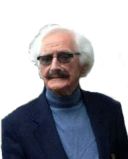Memory
Inspiration
How did the great thinkers get into an inspirational state of mind?
Posted March 5, 2012
Some years ago now in the 1960's, the famed English Classical scholar, novelist (I Claudius) and poet, Robert Graves, commenced his address to the Oxford University Poetry Society with the following words: "This is a critical, not a poetic age," I am told. "Inspiration is out. Contemporary poems must reflect the prevailing analytic spirit. But I am old fashioned enough to demand 'baraka', an inspirational gift not yet extinct, which defies critical analysis." Graves' 'baraka' is Arabic in origin and has connotations of 'blessedness', of the gift of 'divine favor'. In his use of the word, he is clearly intimating that inspiration represents an exalted gift of insight — a creative flash of awareness indicative of an inner-directed breakthrough from the unconscious; what Jung once described as 'the soul's instant wisdom'. Graves would have us know that poetic inspiration "defies critical analysis": that it goes beyond an objective knowledge of life and the world gained through the five senses and the rational processes of deduction.
Some two thousand and three hundred years earlier, the Greek philosopher Plato wrote about the extrasensory nature of all highly creative achievements in his dialogue Ion: "For the poet is a light and winged and holy thing, and there is no invention in him until he has been inspired and is out of his senses. When he has not attained to this state he is powerless and is unable to utter his oracles."
One of the most extraordinary statements concerning the onset of an inspirational, quite involuntary, state of mind — signifying its unconscious genesis — comes from Mozart's pen. Mozart was responding to a patron inquiring how he set about composing his works — what method and system did he employ? He replied as follows: "When I am, as it were, completely myself, entirely alone, and of good cheer — say travelling in a carriage — or during the night when I cannot sleep; it is on such occasions that my ideas flow best...whence and how they come, I know not; nor can I force them. Those ideas that please me I retain in memory, and it soon occurs to me how to make a good dish of it...agreeably, to the rules of counterpoint, to the peculiarities of the various instruments, etc. All this fires my soul, and — provided I am not disturbed — my subject enlarges itself, becomes methodized and defined, and the whole, though it be long, stands complete and finished in my mind. Nor do I hear in my imagination the parts successively, but I hear them, as it were, all at once. What a delight this is I cannot tell! All this inventing, this producing, takes place in a pleasing lively dream. When I proceed to write down my ideas, I take out of the bag of my memory, if I may use that phrase, what has previously been collected into it in the way I have mentioned." (Taken from Hans Mersmann's Letters of Wolfgang Amadeus Mozart.)
Here is the mathematician Andre Weil: "Every mathematician worthy of the name has experienced the state of lucid exaltation in which one thought succeeds another as if miraculously"
Albert Einstein is said to have disclosed that the inspiration for his theory of relativity came to him in a dream, and in a speech presented on the occasion of Max Planck's sixtieth birthday he said: "The state of mind which enables a man to so work of this kind is akin to that of the religious worshipper or the lover; the daily effort comes from no deliberate intention or program, but straight from the heart."
The German chemist, F.A.Kerkule describes a dream which resulted in the discovery of the formula for benzene:
"I turned the chair to the fireplace and sank into a half sleep. The atoms flitted before myeyes wriggling and turning like snakes. And see, what was that? One of the snakes seized its own tail and the image whirled scornfully before my eyes. As though from a flash of lightening I awoke. I occupied the rest of the night in working out the consequences of the hypothesis.
"Oh, to be out of one's senses! Sweet sounds, oh beautiful music, do not cease! Reject me not into the world again" writes the poet Edna St.Vincent Millay in 'On hearing a Symphony of Beethoven'.
The word inspiration has long been used to denote a 'creative brainstorming'. Its Latin roots in andspirare, signify that one is suddenly overtaken by the unique force of spirit — by the metaphysical 'breath of life' — as opposed to the merely oxygenated breathing which serves to keep the physical self alive. To be in spiritus (as Plato would say), is to be in a non-sensory state of awareness — enabling one to intuitively experience high levels of imaginative comprehension pertaining to the inner nature of things, together with the powerful feelings of affirmation that speak to the discovery of a truth. Human consciousness is a highly complex phenomenon. This is but a brief introduction to just one aspect of it, but it is my hope that browsing through the twenty-four chapters of my book: What the Hell Are the Neurons Up To? will have you wondering just what they are indeed up to.


